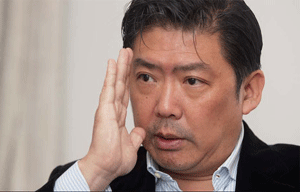Obama likens civil rights to economy fight
Updated: 2011-10-17 10:23
(Agencies)
|
|||||||||
 |
|
US President Barack Obama speaks at the dedication ceremony of the Martin Luther King, Jr. National Memorial in Washington October 16, 2011. [Photo/Agencies] |
WASHINGTON - US President Barack Obama gave a partisan-tinged speech to dedicate a new memorial to Martin Luther King Jr., likening the battle for racial equality to his political struggles in a divided Washington.
In a Sunday address that sounded at times like a sermon, the Democrat said that nearly 50 years since King's famous "I Have A Dream" oration on the National Mall, the monument to him symbolized the need to fight on for social justice.
Obama, the first African-American US president, toured the monument with his wife Michelle and two daughters as well as some of King's family members before addressing tens of thousands of people gathered for the dedication ceremony.
He said the 30-foot (9-metre) granite sculpture of the pastor, arms crossed and eyeing the horizon, was a celebration of the civil rights movement that gave blacks the vote and ended segregation in schools, on buses and elsewhere in US life.
While describing "progress that has expressed itself in a million ways" since the 1963 March on Washington, he said the economic crisis that has driven up the US jobless rate was a new challenge also requiring determined action.
"On this day, in which we celebrate a man and a movement that did so much for this country, let us draw strength from those earlier struggles," he told the crowd on the Mall, where the other iconic monuments commemorate wars and presidents.
Echoing a theme from his speeches for the 2012 campaign, Obama said it was important to remember that King's successes did not come easily and required a great deal of persistence.
"When met with hardship, when confronting disappointment, Dr. King refused to accept what he called the 'is-ness' of today. He kept pushing for the 'ought-ness' of tomorrow," he told the crowd on the sunny, crisp autumn day.
"And so, as we think about all the work that we must do -- rebuilding an economy that can compete on a global stage, and fixing our schools so that every child ... gets a world-class education, and making sure that our health care system is affordable and accessible to all, and that our economic system is one in which everybody gets a fair shake and everybody does their fair share, let us not be trapped by what is," he shouted into the microphone.
"We've got to keep pushing for what ought to be, the America we ought to leave to our children, mindful that the hardships we face are nothing compared to those Dr. King and his fellow marchers faced 50 years ago," he said.










